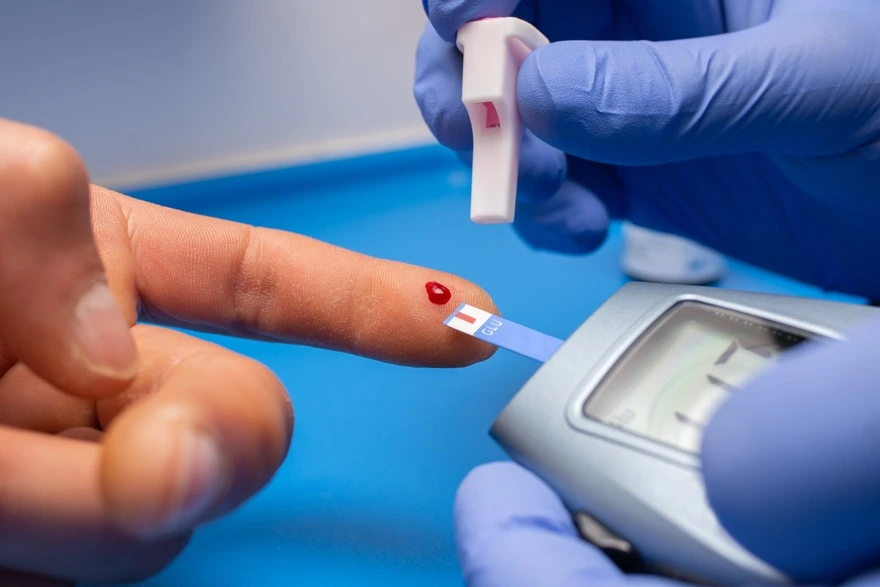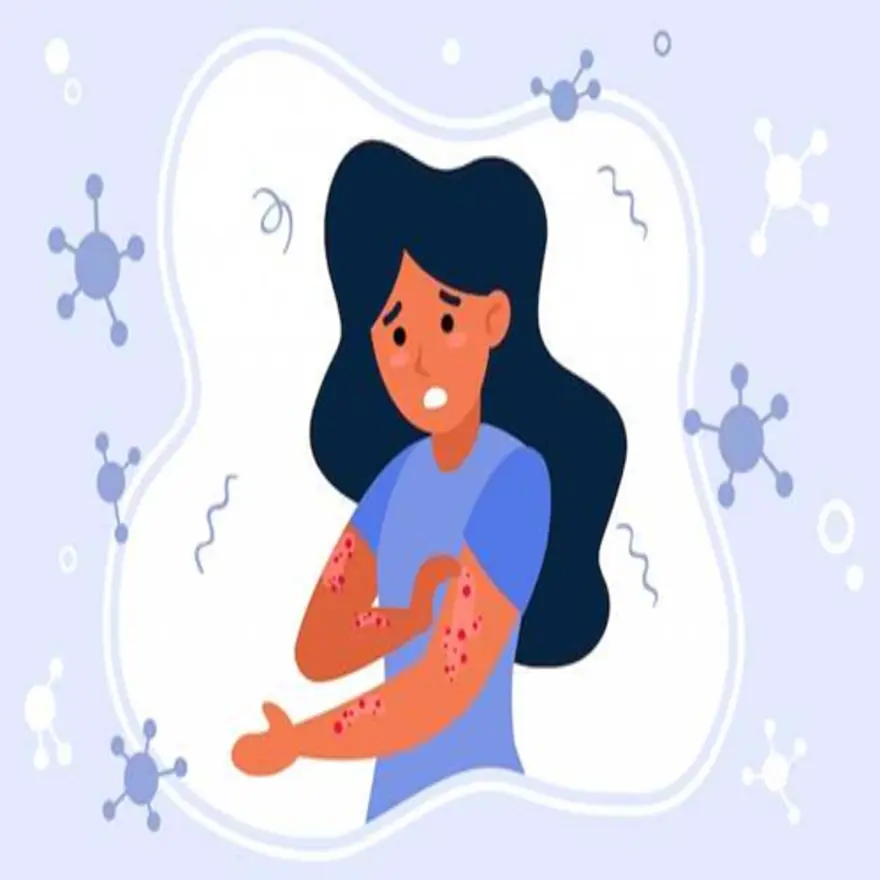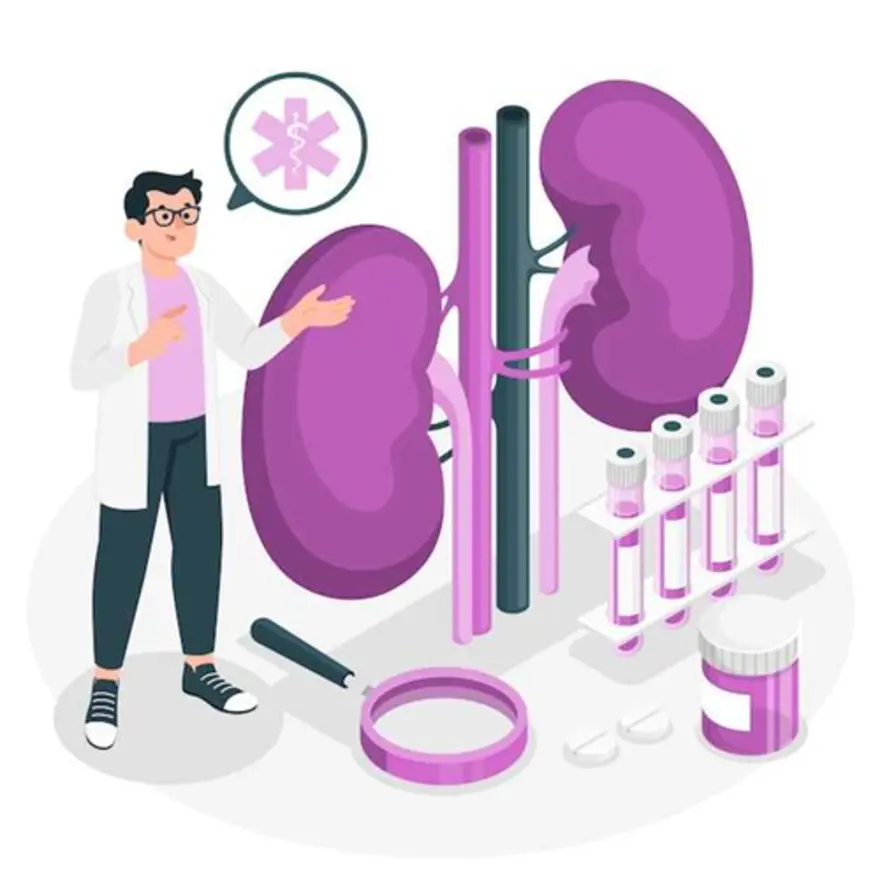Preventive Healthcare
Predict Diabetes with the HOMA-IR Test: Take Control of Your Health
73012 Views
0

What Is Insulin Resistant?
If your insulin levels are high, even though your blood sugar (glucose) levels may be normal, your body is probably having trouble keeping blood sugar levels under check. Your body must release more insulin to maintain blood sugar levels once cells stop responding to insulin. The term 'insulin resistance' is named after this condition.
Following a meal, the pancreas secretes the hormone insulin, which indicates that the body has plenty of energy. By boosting its absorption and storage in tissues, insulin reduces blood sugar levels. Blood sugar is absorbed by the muscles 60–70% of the time, the liver 30% of the time and adipose tissue 10% of the time. Through the HOMA-IR test procedure, you can know your body’s insulin resistance.
What Is HOMA IR Test?
HOMA IR is an indirect insulin measurement, and through the HOMA IR calculator you can know your body’s insulin resistance. Conditions like type 2 diabetes and other illnesses like hypertension, dyslipidemia, cardiovascular disease and cancer can be caused due to insulin resistance. Even if your blood sugar levels are within normal ranges, insulin resistance suggests that blood sugar may increase in the future.
Normal Range
The HOMA IR test normal range can differ slightly from lab to lab and from one measurement unit to another. However, the score of the HOMA IR calculator or HOMA IR test should be 1.0 or below to call it normal. This shows that the person has good insulin sensitivity, which means that their body is utilising insulin effectively.
High HOMA-IR
A high HOMA IR calculator score denotes the presence of insulin resistance, a condition in which the body's cells do not react to insulin as they should. The pancreas secretes the hormone insulin, which is essential for controlling blood sugar (glucose) levels.
When a person has insulin resistance, their cells do not respond to insulin signals well, which has a number of significant consequences:
● Elevated Blood Sugar: Since glucose cannot enter cells effectively due to insulin resistance, blood glucose level rises. This may result in type 2 diabetes or prediabetes.
● Increased Insulin Production: The pancreas frequently produces more insulin to make up for the decreased efficacy of the hormone. This results in hyperinsulinemia, a condition when there are excessive levels of insulin in the blood.
● Weight Gain: Insulin resistance may make it simpler to put on weight and more challenging to take it off. It may cause the body to store more fat, especially around the abdomen.
● Cardiovascular Risk: Insulin resistance is linked to an increased risk of heart disease and other cardiovascular problems.
What Are Its Causes?
Insulin resistance can have a number of underlying causes, and one way to measure it is with the HOMA index test. When the body's cells do not respond to insulin as intended, insulin resistance develops, which raises blood sugar levels and increases insulin production. The following are some typical causes and exacerbating elements of insulin resistance, which can lead to a high HOMA IR calculator score:
● Obesity: Abdominal fat, in particular, is highly correlated with insulin resistance. Inflammatory chemicals that interfere with insulin signalling can be released by adipose (fat) tissue.
● Sedentary Lifestyle: Insulin resistance can be exacerbated by a lack of exercise and a sedentary lifestyle. Cells respond better to insulin when they exercise.
● Genetics: Insulin resistance is influenced by both genetics and family history. Some people have a hereditary predisposition to insulin resistance and associated diseases like type 2 diabetes.
● Poor Diet: Insulin resistance can be exacerbated by a diet high in processed carbohydrates, added sugars and saturated fats. These kinds of foods might cause weight gain and increase body inflammation.
● Stress: Long-term stress can cause hormonal alterations that heighten the risk of developing insulin resistance. Cortisol and other stress hormones have an impact on glucose metabolism.
● Ageing: In older people, insulin resistance is increasingly prevalent. Part of the reason for this is that as people age, they gain more belly fat and become less active. Additionally, as you get older, you need more energy, which increases your risk of overeating. But other elements, such as elevated oxidative stress and compromised mitochondrial activity, might also be involved.
● Sleep Apnea: Obstructive sleep apnea has been linked to an increased risk of diabetes and insulin resistance. Over-activation of the HPA axis compromises insulin action in sleep apnea. Lack of oxygen may also contribute to increasing inflammation, especially in fat tissue.
Health Effects
There are many health effects because of the high HOMA IR index. Some of the high HOMA-IR symptoms include the following.
Diabetes
Type 2 diabetes is the main result of insulin resistance. You are expected to suffer from diabetes throughout your life in case of an insulin-resistance condition.
Polycystic Ovarian Syndrome (PCOS)
In premenopausal women, PCOS is the most prevalent hormone disease. By generating an imbalance in sex hormones, insulin resistance can cause PCOS and aid in its development.
Cancer
A number of cancers, including colon, endometrial, thyroid, pancreatic, kidney and breast cancer, have been linked to insulin resistance. Possible causes of this connection include an imbalance in the levels of IGF-1 and sex hormones.
Hypoglycemic Syndrome
A group of health issues known as 'The Insulin Resistance Syndrome' or 'The Metabolic Syndrome' can be preceded by insulin resistance. These consist of:
● Blood pressure
● Blood sugar
● Increased abdominal fat
● Low good cholesterol and high bad cholesterol
● Raised triglycerides
Fatty Liver
Increased amounts of free fatty acids are transported to the liver as a result of insulin resistance in muscle and fat tissue. The fatty acids cause the production of excess triglycerides, which results in a fatty liver.
Ways to Decrease HOMA-IR
Working with your doctor to identify the factors contributing to your elevated HOMA IR index and insulin resistance is crucial in order to diagnose and treat any underlying diseases properly.
You might also wish to bring up the extra lifestyle modifications indicated below. A change in lifestyle is typically the greatest strategy to get HOMA IR normal range. The two most important steps you can take are:
● Improve your nutrition by consuming fewer calories, more fibre and fewer processed carbohydrates.
● Increase your activity level by exercising frequently and taking frequent active breaks from extended sitting.
Dietary Changes
Fasting/Calorie Restriction
For insulin resistance, less in number is more in benefits. Eating less, or consuming fewer calories, is the best thing you can do to improve the HOMA index test score. Although it is often believed that eating a lot of sugar makes you more likely to develop diabetes, recent research suggests that sugar may only be problematic if it makes you consume an excessive amount of calories overall.
Fibre
More fibre is generally considered to be beneficial for maintaining a healthy balance of sugars, whether it comes from whole grains, insoluble cereal fibres, resistant starch or soluble fibres. A high intake of dietary fibre has consistently been linked to a 20–30% lower risk of type 2 diabetes (>25 g/d for women and >38 g/d for men).
Your HOMA IR index can be quickly improved by eating more fibre: In research with 120 overweight men, supplementing with soluble fibre for just 12 weeks was found sufficient to reduce insulin resistance significantly.
Lifestyle Changes
Weight Loss
In terms of the HOMA IR test, calorie restriction is effective since it causes you to lose weight, particularly belly fat. Around 80% of patients who have gastric bypass recover from type 2 diabetes with a proper diet. Effective weight loss does not require drastic efforts; you only need to reduce 5-8% of your body fat.
De-Stress
Give yourself some time to deal with your tension. Your insulin levels will benefit from any activity that relieves stress and lowers cortisol, whether it is a relaxation method, meditation, yoga, exercise, a hobby or just having fun. Studies demonstrate that breathing exercises like yoga and meditation reduce insulin resistance.
Conclusion
In conclusion, insulin resistance is a situation where the body's cells do not respond to insulin. This poses a serious risk for type 2 diabetes, cardiovascular disease and other health problems as well as raising blood sugar levels. A high HOMA IR index indicates this condition. It is essential to comprehend the root causes of insulin resistance and how it affects health. A balanced diet, consistent exercise, stress management and weight loss are all lifestyle modifications that can increase insulin sensitivity and lower the risk of related health issues.
For an accurate HOMA IR test, you must visit Metropolis diagnostic centre. Metropolis labs have performed 50M+ tests until now and are located all over India. Metropolis labs can also send technicians to your home for sample collection. So, book your appointment today either online or offline and visit the nearest Metropolis centre.























 WhatsApp
WhatsApp